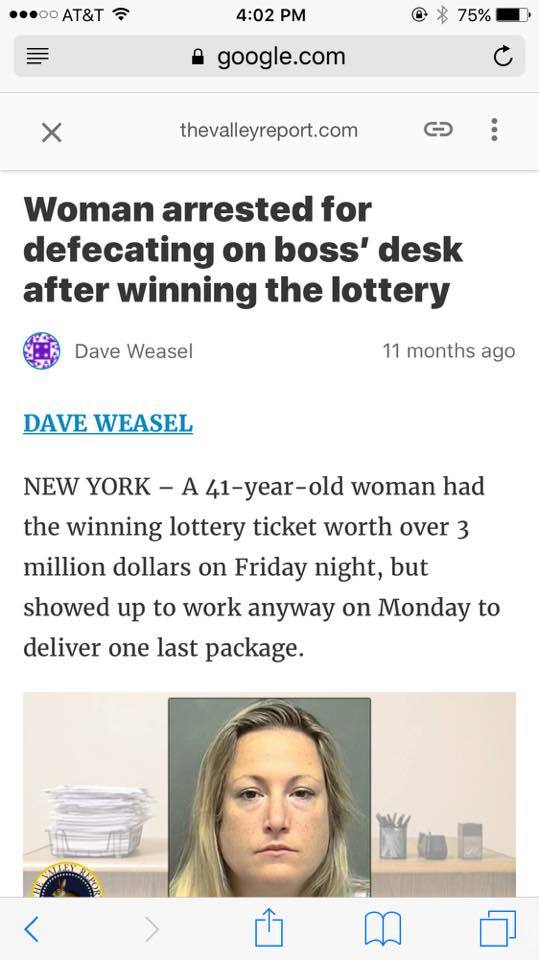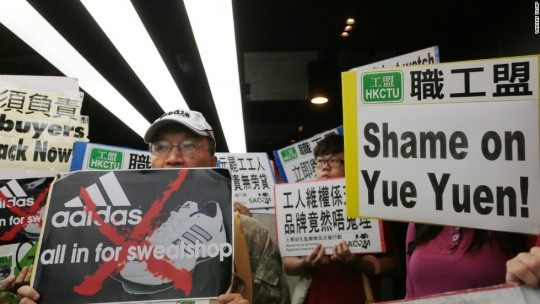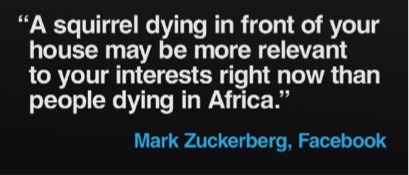Don't wanna be here? Send us removal request.
Text
Do us all a favor and stop sharing Fake News.. Seriously.
What is Fake News?
Fake news is a type of news where the outlets use hoaxes or propaganda to encourage the intentional spread of disinformation.This type of news is most commonly seen on social media platforms to get you to view the information and share it with others. Other ways fake news is spread is by using satire to better appeal to audiences with comedy and emotion.
How can we train ourselves to avoid sharing Fake News?
After sitting in on a fake news presentation from a woman who works in my small college’s library, I began to realize how susceptible we all are to fake news and the use of satire. It’s easy to think you would be able to know the truth when reading an article but sometimes we allow these stories to end up going viral on the web by sharing them with others even when we’re not sure if what the writer is saying is true.
So, what do we do if we’re having doubts about a story we’re reading? First it is best to use some technological common sense. Chances are if a website that you’re on doesn’t look trustworthy, it’s probably not. Look at your URL to see if the website ends with “. lo” or “. co.” Also, does the story go against established facts and does the wording seem more like the writer is making assumptions rather than stating facts?
One of the best ways to check if something you’re reading is true is to use a reliable search engine! (Google will always be your best friend). Take the author, headline, or even the site itself and scan the first page of results. If your article hasn’t already been found fake and removed, the search will still include relating articles and hopefully even the original!
It’s OKAY if you’ve fallen victim to Fake News!
We live in a day of age where most of us rely on technology to receive our news and keep us up to date with the world. It’s not our fault we want to trust that the people being paid to inform us are giving us the correct information. We also use social media not only to seek news but to be entertained. Therefore, it’s so easy for us to fall victim to the sharing of false information just because we may find something entertaining but never check if it’s true. This is the definition of click bait. Companies receive money every time you click on their cleverly headlined articles because you’re drawing web traffic to their site.
Fake News is some serious stuff!
About a year ago, an article surfaced about a woman who won over three million dollars on a lottery ticket. You’re probably thinking what does this have to do with anything? It just so happens that the main point of the article came a little further down in the story and stated that this same woman then showed up to work that Monday morning just so she could leave a number 2 (poop) on her boss’s desk. Who needs a job when you’ve won the lottery right??

It turned out the whole story was a hoax. Tens of thousands of people shared this story all over social media and hundreds of comments came in either supporting or bashing the woman’s decision. The article’s picture which was also on its Facebook link was of a woman’s actual mugshot which is one of the most popular ways fake news sites get you to click on something. I came across it and of course shared it on my personal Facebook page (don’t judge me) because I laughed and thought it was funny. Turns out the article was completely fake but the mugshot was from a 2014 actual news story about a Connecticut woman who was arrested in the case of hypodermic needles found on an elementary school playground.
Moral of the story, be smart about the information you’re taking in, accepting to be true, and sharing with other people. If you’re not sure about something start by looking at some context clues of appearance. Also, take the article or the author and put them in a search engine to do your own research of the subject matter.
Think before you click!
0 notes
Text
Teresa Cheng Biography
Teresa Cheng was born in the United States and is a labor rights activist with a passion for campaigning against sweatshops and unjust decision making. She is currently 29 years old and became involved with activism at the University of Southern California. Her interest peeked in this subject in 2008 when she found out about the mass amounts of Honduran sweatshops that were being used to create clothing for Russell Athletics, clothing that was being sold on her own college campus. This is when she led an anti-sweatshop campaign and also became the national organizer for United Students Against Sweatshops. Her duties at this role consisted of training and coordinating a network of student labor organizations across the United States to “make campaigns in solidarity with unions to demand that global corporations respect workers’ rights.”

One of Cheng’s first goals was to assemble a national campaign to influence Russell Athletics to rehire the 1200 employees from Honduras who they had fired by closing their factory after voting to unionize. Not only did they pressure Russell Athletics directly but also indirectly by protesting the National Basketball Association by organizing protests at the NBA finals in Orlando, Florida, and Los Angeles to bring attention to the NBA’s licensing agreement with the clothing company. Cheng also helped organize student activists on around 100 campuses that persuaded their universities to end licensing agreements with Russell Athletics. They even went above and beyond to physically put themselves in Sports Authority’s and Dick’s Sporting Good’s stores across the United States to educate customers about the brand. They also used social media to discourage customers to buy Russell products. Teresa Cheng was able to put together a letter that was signed by 65 members of congress who also showed concerned over the conditions of work at the company. It took 89 contract losses but Russell Athletics ended up rehiring the workers and opening a new plant in Honduras.

In 2009 Nike shut down 2 subcontractor plants in Honduras which left around 1800 workers with no jobs and had no intention to pay them the several million dollars that was owed to them according to Honduran labor laws. Cheng did what she’s best at and organized speakers across the country to inform universities who had contracts with Nike. It only took one contract termination and the threat of another to convince Nike to pay back 1.54 million dollars to their former employees along with providing healthcare and quality vocational training.
Not only does Cheng have experience leading change within the United States Against Sweatshops organization but also helping when she sees fit. More recently in 2014, Cheng stepped in when workers at an Adidas factory in Donnguan, China started protesting claiming they were not being paid the full amount of social insurance and worker housing benefits they were promised. Cheng stepped in making a statement that she wasn’t surprised of this behavior from Adidas and organized groups to protest in Hong Kong, Istanbul, Los Angeles, New York City, and Melbourne. Because of her efforts in Honduras, a dozen workers’ unions from Honduras to Bangladesh have formed International Union League for Brand Responsibility which demanded that Adidas work directly with subcontracted workers who sew their clothing and “guarantee living wages, safe factories, and stable jobs.”

After working with United States Against Sweatshops, Cheng moved to Honduras and started working with the General de Trabajadores to help gain global alliance of workers at Adidas factories around the world. There is no loss of passion in Cheng’s work. Anyone who does their own research on Cheng will find that she loves what she does and her main goal more than anything is to educate people on their buying decisions because they really can make a difference, a difference in the conditions for other people that make the products most people in the United States purchase regularly.
Teresa Cheng is someone lucky enough to stand up for people who don’t necessarily have a voice. Workers in sweatshops often don’t have room to voice their opinions of terrible working conditions because of most company’s spiteful reactions of going and making conditions purposely worse for the workers. The work Cheng does goes above and beyond to speak for these people that are being treated unfairly in order for goods to be produced cheaper than in the United States. It’s people like Cheng that America is lucky to have to educate and bring awareness to a topic that most people ignore but doesn’t mean it isn’t happening and can’t be stopped.
References:
Bacerra, A. (2016, October 9). “Teresa Cheng.”
Chan, W. (2014, April 25). “Adidas Shifts Orders After Massive Strike at Chinese Shoe Factory.”
Dreier, P. (2014, January 23). 19 “Activists Who Are Changing America.”
Uetricht, M. (2010, July 28). “Will Sweatshop Activists’ Big Victory Over Nike Trigger Broader Industry Reforms?”
0 notes
Text
We’re Talkin Filter Bubbles Here People, So Listen Up.
What is a filter bubble you may ask? Well, a filter bubble happens to be an already existing algorithmic made filter affecting your search engines and social media platforms without you even knowing it! A little better understanding of the topic can come from Dwork and Mulligan who write for the Stanford Law Review. You might be asking yourself at this moment, “But aren’t my searches on my own personal computer private?” The answer to your question is absolutely not. Here is some information from the writers on the problems of filter bubbles to help clear up some things and possibly make you a little worried..
““Whether the information used for classification is obtained with or without permission is unrelated to the production of disadvantage or discrimination. Control-based solutions are a similarly poor response to concerns about the social fragmentation of “filter bubbles” that create feedback loops reaffirming and narrowing individuals’ worldviews, as these concerns exist regardless of whether such bubbles are freely chosen, imposed through classification, or, as is often the case, some mix of the two.”
(to read more of this article, click on the link below)
https://www.stanfordlawreview.org/online/privacy-and-big-data-its-not-privacy-and-its-not-fair/
To break this down in easier terms, the information you search for whether it be typing a topic into google or clicking an article to read on Facebook, is all tracked. Your political views, sex, age, opinions on global topics, friends, all affect the results you may receive from a search engine or information that is already displayed on your Facebook or Twitter feed. A filter bubble makes your device display things that it knows you’ll like. It doesn’t necessarily sound like a bad thing when it comes to the means of entertainment, but this is why many people are never exposed to different views or values. It allows us to be narrow-minded and separates us from information that we really should see but may not always agree with.
My Own Experiment:
As a senior Communications Major in college, my Social Media professor thought it would be a good idea to take matters into our hands when it comes to understanding the effects of filter bubbles on our devices. Each of us paired up with someone that we had no online friendships with. I teamed up with another white, 19-year-old female. I myself am also a white female except I am 21 years old. We compared our filter bubbles by each searching the same word on both our Yahoo and Google search engines, this word being “Brexit”. For anyone unaware of what that word means, (which I didn’t prior to the experiment), it refers to the United Kingdom leaving the European Union. I am going to break down the differences of our research in the next two sections of the post. We then went onto compare our own personal Facebook and Twitter feeds which was a lot more interesting.
Google “Brexit” Results:
For the sake of privacy, I am going to refer to my partner as “A.” A used her phone in the morning to do all of her research while I used my computer at night for both search engine results. When sitting down and comparing the first and third page results, we found that the first three results of A’s search were Wikipedia, The Economist, and BBC while mine were Telegraph.co.uk, The Guardian, and Financial Times. Two other results that weren’t included in any of my data were Reddit and Referendum which both came up on the first page of A’s results. My top 5 results also included bbc.com and Wikipedia where Wikipedia was in the top three of my partner’s results.
Yahoo “Brexit” Results:
Although Google is more of a popular search engine than Yahoo, A and I recorded more data for what we both thought was the second most popular search engine. A’s first 8 results for her search on page one consisted of 1) Goldman Sachs, 2) CNBC, 3) The NY Times, 4) Wikipedia, and 5) Investopedia. Her third page results consisted of 1) The Global Economist, 2) FT.com, 3) CNN, 4) USA, and 5) Today. My first page results consisted of 1) Yahoo Finance, 2) Bloomberg via Yahoo Finance, 3) Associated Press via Yahoo Finance, 4) Wikipedia, 5) CNBC, 6) NY Times, 7) ft.com, and 8) Investopedia. My third page results consisted of 1) The Guardian, 2) BBC News, 3) Fortune, 4) Huffington Post 5).
Search Engine Conclusions:
So what do these results really mean? These results prove that even though Google itself may claim to be an “unbiased” search engine, our filter bubble makes it give us information through databases that best fits what it thinks we would like to see. This doesn’t mean I care about Yahoo Finance more than A and that A uses Wikipedia more than I do. It means that what we’ve previously searched for before is influencing what we’re seeing now. My Yahoo Finance search could easily mean that my computer has kept track of the way I prefer to see information. The search engine conclusions mainly sum up that our results were similar probably due to the lack of political information we both search for and us being white and female young adults.
Facebook:
A and I’s next task was to complete an analysis on what our own personal news feed looked like on Facebook. A found that her Facebook consisted of more memes, videos, shared pictures, and comical situations. My news feed contained more personally handwritten statuses, personal photos, and shared news posts such as Ellen and Fox News. A and I both did our research in the morning which is usually one of the most popular times on the platform due to the popularity of waking up and checking our phones. This was completely understandable data from both of us due to our prior knowledge of each others use of Facebook. A rarely ever used Facebook other than to look at videos, memes, and recipes while I use mine all the time to share pictures and handwritten statuses. This is why my feed consisted of exactly what I was putting out there for people to see except it was other people’s personalized posts.
A had videos come up from the “Tasty” page which she frequently got recipes off of and saved. This is why these videos were often some of the first to show up on her timeline along with videos and memes shared by the Facebook friends she did choose to communicate with on the platform. My top news feed posts were from the people that commented on my posts the most. It also isn’t uncommon that Fox News comes up on my timeline because I come from a small town where most of my friends are conservative and vote republican when it comes to politics.
Twitter:
A’s twitter was also less personalized than mine although she made it known that she uses Twitter more than Facebook. Her Twitter feed consisted of a lot of shared Comedy Central posts along with Kardashian posts and cars. A was unsure of why cars were so popular on her feed but questioned if it was because an common interest of friends shared often being they were mostly guys. There were also a lot of sports videos which made since because she is a college athlete who plays both softball and soccer. Ads for Metro PCS were also on her Feed but were shared through other profiles for sponsored advertising.
My Twitter feed consisted of a lot of shared tweets from sites I followed like The Office and a many from MTV because I am an avid watcher and follower of the characters in their reality TV shows. Due to following less people on my Twitter, I also experienced having more advertisement posts for sites such as Toys R Us rather than personal tweets from the people I was following. People’s tweets came up first that I interacted with more and liked or retweeted my tweets because it was more likely that I would then like or retweet theirs back in return.
What do We do with all of This Data?!
If you even read all the way down to this last section, you’re probably thinking so how does all this data relate back to me and my own searches and social media accounts. Well, you should know that NONE of your search engines results or feeds are at random. Each platform collects information from your device to make your results better suited to your likings. There are many things we can learn from filter bubbles. In fact, our ethnicity, age, and gender can all affect the results of any search we do online.
Search engines vary much less due to these factors than social media platforms do because we choose to put so much personal information on our accounts. Therefore, Facebook and Twitter personally market themselves to not only us, but our entire demographic. Don’t you wonder why your parent’s Facebook hopefully looks different than yours even if you have similar friends? It’s because they’re probably old and tlk lik ths because they think it’s still cool. No but really, it’s because each of us uses our computers, cell phones, and tablets for our own personal reasons and our devices are smart and know this. This may seem like a great thing when it comes to the convenience of information we agree with but what is it really helping us in the long haul?

Some Last Minute Thoughts:
What happens to a world of people who only read, hear, and communicate with others that have the same opinions as they do? What happens when you’re a democrat and only are exposed to CNN news articles on Facebook with your Clinton supporting friends? Has the convenience of an already filtered online search caused us to not appreciate new ideas from other people just because they are a different color or age than us? So be proactive and search things on another person’s computer that you may not talk to everyday. In an already filtered world it is our job to un-filter the good with the bad.
0 notes